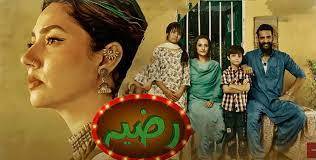
As this announcement rings through the hospital, the celebrations begin. After all, who in their right minds would not rejoice at the arrival of a male addition to the family? A boy is always welcome and this was recently portrayed in a play on ARY called Razia where her mother is threatened with divorce if she bears another daughter. Very simply narrated, it depicts the reality of most middle-class households; in fact, the reality of society.
This play portrays the stark difference between how males and females are raised and is a superb attempt to depict the inferiority of the fairer sex right from the day she comes into this world or even before, as Razia’s father categorically states that if the newborn is a boy, he should be saved and not the mother if it is a choice between the two. Razia, from day one, is unwanted and unloved.
Anther play which comes to mind starred the actress Saima called Mubarak ho, beti hui hai. When Saima is unable to produce a male heir, her husband remarries in the hope of having a son. Superbly made, this was another attempt to remove the stigma attached to bearing daughters and this issue was also highlighted in the play Zindagi Gulzar Hai also where Sanam Saeed’s father remarries and has a son from his second wife after his first wife is unable to bear him a male heir.
The media has time and again brought this issue to the fore in an attempt to change the mindset prevalent in society. Female infanticide is very common across the border where the fetus in most cases is aborted if it turns out to be a girl. Again, in China, when the one child policy was implemented, the girls were repeatedly killed so that the couple could fulfill their desire of having a male heir.
As a result of tampering with nature, the male to female ratio in China was disturbed and the percentage of women is nearly 49% compared to 51.01% for males. This obsession with producing male heirs continues unabated.
Does that mean that women were always treated as inferior beings? Were they always children of a lesser God? The Holy Prophet (PBUH) only had daughters; in fact, Islam calls daughters a blessing. Under the influence of the Hindu culture where girls were traditionally viewed as a burden because they had to be married off with loads of dowry, this outdated concept became embedded in our societal fabric.
Indian parents, traditionally speaking, right from the day a daughter was born would start amassing assets which could be sold to marry her off in style when the right time came. Males were supposed to look after their parents in their old age while girls were wedded and sent off soon after they reached puberty to what was referred to as their real “home.”
Since the Hindus and Muslims co-existed for hundreds of years in the Subcontinent, culturally, a lot of their traditions, customs and rituals have been intentionally or unintentionally absorbed by our society. Islam is relatively a very simple and progressive religion and while the Hindus traditionally deprived their daughters of a fair share of their parents’ inheritance, Islam specifically stipulates that women have a lawful right to inherit from their parents and depriving them of this legal right is condemned by both religion and society.
Although the play Razia is a story about a girl from a middle-class household, the obsession with males traverses all socio-economic groups of society. Women are always under duress to bear male children and although it is widely known that the sex of the baby is determined by the father, they are still pressurised to produce a male offspring.
In fact, we now have gender selection experts who are in great demand and sought after by couples desperate to have a boy and in rare cases, a girl. Shoaib Mansoor’s film Bol again was a depiction of this regressive mindset and outlook of society where women are viewed as inferior beings and subjected to all kinds of gender-based discrimination, once they step into this world.
It is encouraging that the media is shouldering its responsibility of changing mindsets regarding the fairer sex in society by producing plays like Razia and without going into undue histrionics or melodrama, simply and beautifully narrates how females are discriminated against in their own households.
In fact, honour killings, acid attacks, subjecting women to all types of harassment and all these social evils are fuelled by this inherent hatred and animosity towards the fairer sex which is gaining traction day by day. Women, rather than being viewed as individuals in their own right, are treated like commodities, to be traded as and when desired. A family’s honour is inextricably linked to the womenfolk and if the men misbehave, the women are forced to step in to pay the price in addition to upholding the so-called family honour, so they have a dual responsibility.
Generally speaking, women are believed to be the stronger sex, both mentally and emotionally. We need enlightened and progressive women for the country to prosper. Both genders have an equally important role to play in society and in order for this country to move forward, need to work together.
Pakistan is viewed as one, if not, the most backward and regressive country in the world for the fairer sex and that viewpoint is corroborated by all the negative publicity surrounding the womenfolk in this country. With every passing day, the situation deteriorates and the atrocities against women multiply in number. Will we ever manage to climb out of this abyss we have fallen into? Only time will tell if there is a light at the end of the tunnel or a silver lining to the cloud. We can only hope, pray and do our bit to make a difference!

